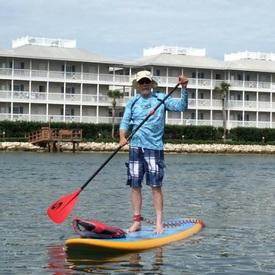Vetting Science

misterhub
Posts: 7,263 Member
How should one go about vetting scientific data related to food and nutrition?
How do YOU vet such scientific data?
How do YOU vet such scientific data?
0
Replies
-
Interesting question.
If it’s reported in the popular media, the more sensational it sounds, the more skeptical I am.
They mistake loads of stuff for clickbait.
If I want to check something out I look at the Mayo Clinic website or NIH website.2 -
I look at number of subjects, double blind, self reported, etc.1
-
This has always interested me, as I am a research nut. What is fascinating, both here in Canada and in the US as well as Europe, is how the official Food Guidelines (Food Pyramids) have evolved / modified over the years. Even some of the top researchers in nutrition tend to significantly change their views and perspectives over time.
For example, eggs and bacon were taboo for so many years; than egg yolks was taboo but egg whites were fine; now they are saying whole eggs are best, as egg yolks have beneficial factors when used in moderation!
My dear grandfather ate bacon and eggs virtually EVERY MORNING and lived in good health to a ripe old age - granted he also lived an active, healthy lifestyle ... which I suspect is the real message in regards to food and nutrition - eat as healthy as possible; avoid processed foods as much as possible; and offset it all by living an active lifestyle!
For me - it seems so simple, yet has been rather difficult to live by in a world of fast food and sedentary office jobs!1 -
I am a sciency guy who spent many years in medical research. Most of us are in a sense "sceptics at heart". One needs to be flexible and willing to replace ideas that are disproven and much more. I look at the sources and always try to read the original research papers when possible and not rely on opinion pieces about the original papers. I like articles from Mayo clinic myself and from NIH too. Even with some of the best studies like the National Weight Control Registry which follows over 10,000 participants long term you have to look at the specifics. Sadly all of the results there (by necessity) are self-reported and even worse "self-defined" in regards to some critical factors. Eating breakfast is highly touted and about 78% of the successful participants self-report that they eat what they believe to be breakfast (self-defined). When groups of folks are questioned the percentage of participants eating within 1 hour of arising for example drops off from that percentage. Without definition the meaning of "breakfast" loses it value as we all in a sense "break the fast" and eat sometime. Sounds picky but that is what double-blind, peer reviewed science is.
Another splash article about eating late and obesity in Spain is shown to be about something quite different. The authors who were being paid by a grant could in no manner show ANY correlation between eating late at night and obesity so they showed by statistics that folks who ate a later lunch had some correlation with obesity. They went on to rationalize that their title wasn't erroneous because many folks in Spain eat large meals for lunch. I was unimpressed.1 -
splash = splashy . Trouble editing right now.0
-
I don't follow any of the studies. I believe what Fat @FatCrankyGoat said "eat as healthy as possible; avoid processed foods as much as possible; and offset it all by living an active lifestyle!"
The only problem is actually doing it.
2
This discussion has been closed.




